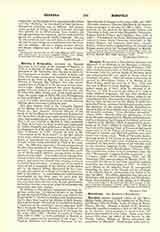

Herrgott, MARQUARD, a Benedictine historian and diplomat; b. at Freiburg in the Breisgau, October 9, 1694; d. at Krozingen near Freiburg, October 9, 1762. After studying humanities at Freiburg and Strasburg, he became tutor in a private family at the latter place and accompanied his two pupils to Paris, where he remained two years. Upon his return to Germany he entered the Benedictine Abbey of St. Blasien in the Black Forest, made his vows on November 17, 1715, and was sent to Rome to study theology. After being ordained priest on December 17, 1718, he returned to St. Blasien. In 1721 he went to the Abbey of St. Gall to study Oriental languages, but was soon recalled in order to accompany his abbot to Vienna, where he devoted himself for a few months to the study of history. Shortly after, he was sent to the Abbey of Saint-Germain-des-Pres to continue his historical studies under the direction of the learned Maurist Benedictines. The first fruit of these studies was a valuable work on old monastic customs, “Vetus disciplina monastica” (Paris, 1726). Shortly after the publication of this work, Herrgott returned to St. Blasien, gathered material for a history of the Diocese of Constance and wrote a history of St. Blasien, which is preserved in manuscript at St. Paul’s Abbey in Carinthia. In 1728 he was sent to the imperial Court of Vienna as diplomatic representative of the Estates of Breisgau, which then belonged to Austria, and filled this position very creditably over twenty years. While at Vienna he made a thorough study of the history of the imperial house of Hapsburg and, after eight years of diligent researches, published the first three volumes of his valuable work on the Austrian Imperial family “Genealogia diplomatica Augustae Gentis Habsburgicae” (Vienna, 1737). The continuation of this work he published under the title “Monumenta Augustae Domus Austriacae”, vol. I (Vienna, 1750), vol. II (Freiburg, 1753), vol. III (Freiburg, 1760), second edition (St. Blasien, 1773). As reward for his labors he had been appointed imperial councillor and historiographer in 1737. In 1749 he gave offense to the imperial Court by courageously defending the rights of the Church and the privileges of the Estates, and, in consequence, was forced to resign his office. His abbot appointed him provost of Krozingen and governor of Staufen and Kirchhofen, which were dependencies of the Abbey of St. Blasien.
MICHAEL OTT

